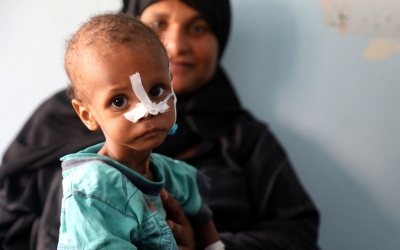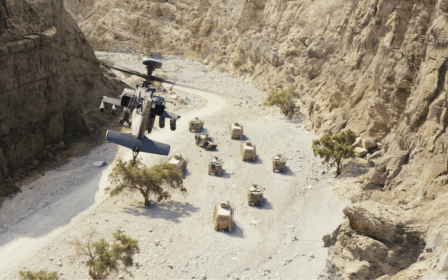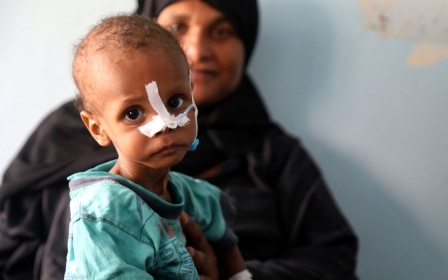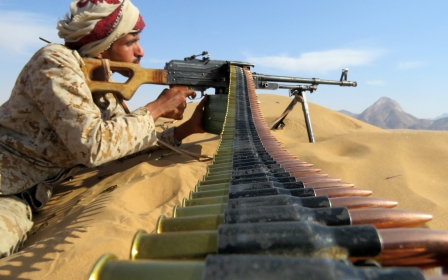Al Kameen: UAE’s Yemen war film rides nationalist fervour to break records
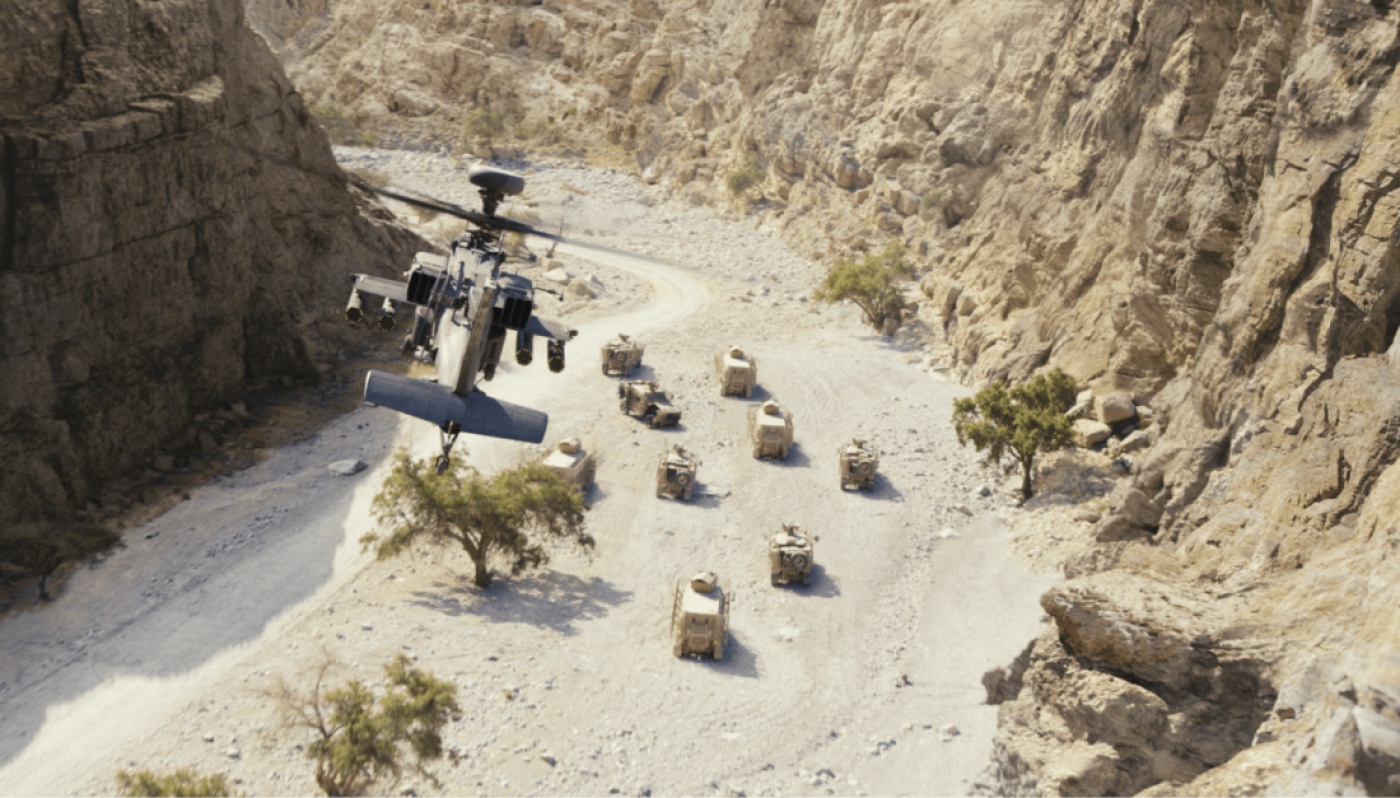
A controversial action movie based on the Yemen war has become the UAE's highest grossing Arabic-language feature ever.
With over 170,000 tickets sold between 25 November and 29 November according to local media, Al Kameen (The Ambush) had the fifth highest overall opening for the year.
New MEE newsletter: Jerusalem Dispatch
Sign up to get the latest insights and analysis on Israel-Palestine, alongside Turkey Unpacked and other MEE newsletters
Helmed by Taken director Pierre Morel, who has said he "always wanted to direct a war movie", the film is centred around a 2018 incident, in which Emirati troops stationed in Yemen reportedly attempted to rescue comrades bogged down after an ambush by Houthi forces.
A seven-hour-long clash then ensued, in which one Emirati soldier was killed and others were injured.
UAE military officials credit the rescuers with saving the lives of at least 18 soldiers during the incident.
Nevertheless, the film's producers were criticised before its release for whitewashing the UAE's role in the Yemen conflict, the death toll for which is estimated to reach 377,000 people by the end of 2021.
Pro-Houthi sources have also relased a number of videos on social media purportedly disproving the UAE's narrative of the clash.
In one post, which has not been verified, an armed Houthi supporter is seen surveying the charred remains of an Emirati vehicle, singing an anti-UAE song.
Nationalistic feeling
The criticism and the pro-Houthi reaction seemed to have mattered little to the tens of thousands of Emiratis who have watched the movie.
On social media, a number of Emiratis said they were driven by a sense of patriotism for their country and solidarity with the soldiers who fought in the conflict.
Summarising the sentiment, one user named Fahima wrote: "I feel that it’s a national duty to watch Al Kameen I’m taking 3 boxes of tissues with me."
Another named Tamim Ali said the movie was good on its own merits, irrespective of its nationalistic subtext.
"I have never praised an Arab film like this," he wrote, adding: "By God, it is not because it is Emirati, but its directing and creative value mean you can't look away from the film."
Others shared the "10/10" reviews they were giving the movie on rating site IMdB, where Al Kameen currently has a rating of 9.1 based on 399 ratings.
I rated الكمين (2021) 10/10 #IMDb https://t.co/lWALl1S5Zr
— Talal AlHammadi طلال الحمادي (@Talal_AD) December 1, 2021
Such expressions might be exactly what Emirati officials were hoping for, according to King's College academic and Gulf analyst Andreas Krieg, who said the film was an "attempt to rally public opinion around the publicly unpopular Yemen War", through what he called a "heroic narrative".
"Hypernationalism has been a means by which Abu Dhabi has tried to build national cohesion and unity. This movie is just a different means to mobilise the public," he told MEE.
Krieg said there was discontent in some emirates, such as Ras Al Khaimah, over the disproportionate sacrifice its residents had made during the conflict when compared to more powerful emirates, such as Abu Dhabi.
"There have been protests in Ras Al Khaimah over Abu Dhabi using northern Emiratis on the ground to fight its war in Yemen."
As of 2020, 108 Emiratis have died in the conflict in Yemen and while troops have officially been withdrawn, Abu Dhabi is still believed to be exerting influence in the country through proxy militias and mercenaries.
The UAE joined the conflict in Yemen in 2015, along with Saudi Arabia, after Houthi forces seized the capital Sanaa and advanced southwards.
Al Kameen is not the first film to have been criticised for attempting to serve Emirati policies. Production houses based in the country were behind the movie Misfits, starring Pierce Brosnan, which was a thinly veiled dig at Abu Dhabi's regional rival, Qatar.
That film was set in a fictionalised version of Qatar, named Jazeeristan, presumably after the Doha-based Al Jazeera network, which has ruffled feathers in the UAE for its coverage.
Middle East Eye delivers independent and unrivalled coverage and analysis of the Middle East, North Africa and beyond. To learn more about republishing this content and the associated fees, please fill out this form. More about MEE can be found here.



